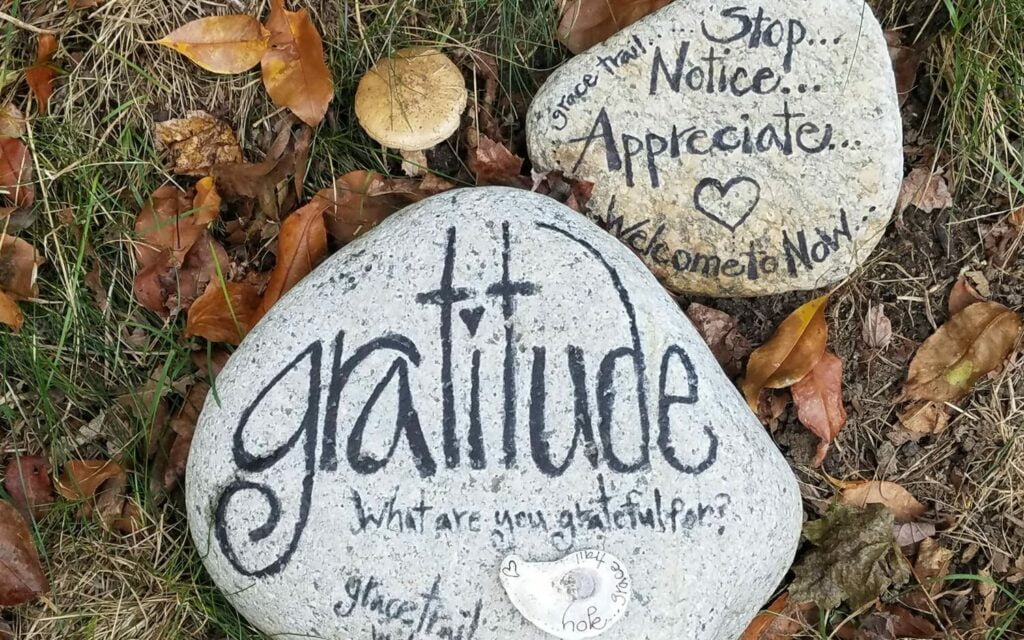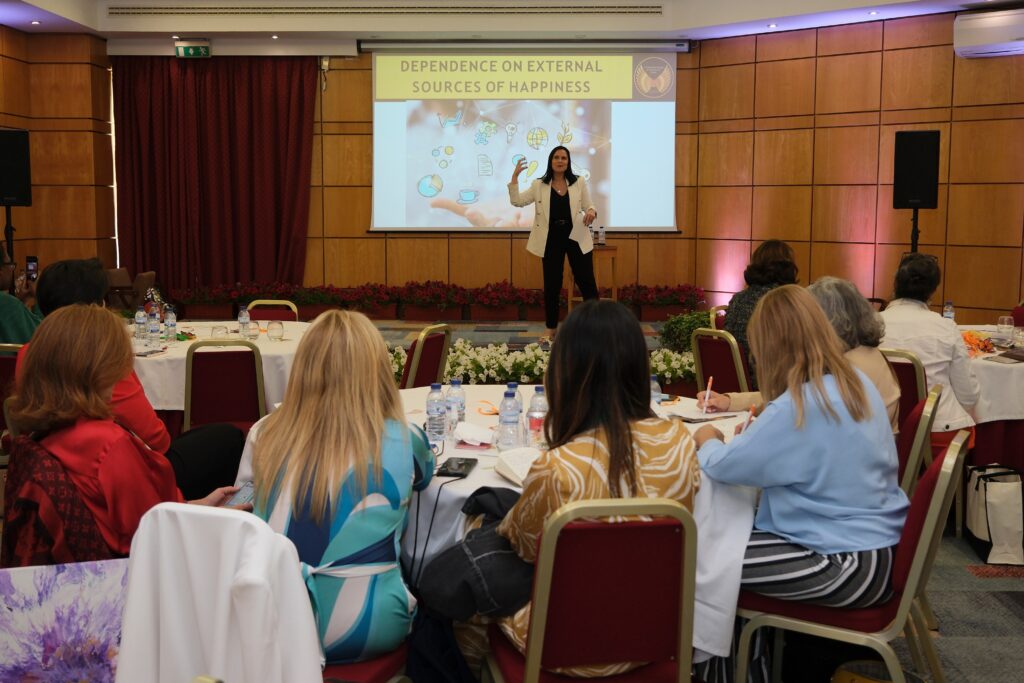Happiness: How to Break Free From the Holiday Blues and Be Happier
How do you escape the holiday blues? In her debut piece, Paul Delgado, Happiness Executive Contributor is exploring the connection between gratitude and happiness, as well as the impact of gratitude on the brain, using data from the World Happiness Report and scientific evidence to demonstrate how practising gratitude can lead to a happier life.

Each holiday season arrives with the promise of a warm and festive atmosphere, where homes are shining with twinkling lights, and the aroma of delicious feasts fills the air. It’s a time when families gather, and traditions are celebrated with great anticipation and joy. Yet, amid the glittering ornaments and merry carols, it’s important to recognize that for many, this time of year can be tinged with sadness, anxiety and depression. As the days grow shorter and colder, and the holiday frenzy takes hold, some people find themselves struggling with mental and emotional wellbeing.
The holiday season can be particularly challenging for those facing major depression or severe anxiety disorders. There are also those who may not meet the clinical criteria for these conditions but still find themselves feeling lost, overwhelmed, or down during this time of year.
In this article, we will explore the connection between gratitude and happiness, as well as the impact of gratitude on the brain, using data from the World Happiness Report and scientific evidence to demonstrate how practising gratitude can lead to a happier life.

How to combat the holiday blues?
Research and common sense alike suggest that one aspect of the Thanksgiving season can provide a genuine lift to your spirit, and it’s a simple practice that’s inherently built into the holiday itself: being grateful. will explore the profound effects of gratitude on mental wellbeing and how it can bring hope during the holiday season for those seeking solace and emotional nourishment.
The Power of Gratitude: Giving Thanks Can Make You Happier
Gratitude is a timeless virtue that is known across cultures and has been valued throughout human history. Beyond its moral and ethical significance, research has shown that giving thanks can have a profound impact on our overall wellbeing and happiness.
The evidence from latest Harvard Report and scientific research are clear: giving thanks can make you happier. Gratitude is a powerful and accessible tool that can be harnessed to boost overall wellbeing. By cultivating an attitude of gratitude and focusing on the positive aspects of life, people can experience increased happiness, reduced stress, and improved relationships. The next time you find yourself in search of happiness, take a moment to reflect on the things you’re grateful for – it may be the key to a happier and more fulfilling life.

What is the Correlation between Gratitude and Happiness?
Numerous studies have indicated a strong positive correlation between gratitude and happiness. When individuals express thankfulness for the positive aspects of their lives, they tend to experience increased levels of contentment and life satisfaction. This connection between gratitude and happiness is not just anecdotal; it is supported by empirical evidence.
The World Happiness Report, an annual publication by the United Nations, provides valuable insights into the state of global happiness. The report takes into account various factors such as income, social support, life expectancy, freedom to make life choices, trust, and generosity to evaluate happiness levels in different countries. One notable factor, generosity, reflects the role of gratitude in contributing to happiness.
Generosity, a component of the World Happiness Report, encompasses actions such as donating to charity or helping others in need. This factor underscores the idea that expressing gratitude often involves acts of kindness and giving, which, in turn, contribute to personal happiness. Countries that rank high in terms of generosity often report higher levels of happiness among their citizens.
The Positive Impact of Gratitude on Your Brain Activity
Neuroscientific research has shown that expressing gratitude can lead to changes in brain activity. When we focus on what we are thankful for, our brain’s reward centre, the ventral striatum, becomes more active. This increase in neural activity is associated with feelings of pleasure and well-being.
Gratitude practices have been linked to a reduction in stress levels. By acknowledging the positive aspects of life, we can mitigate the impact of stressors and enhance our emotional resilience.
Expressing gratitude can strengthen relationships. When people express thanks, it fosters a sense of appreciation and reciprocity, leading to stronger bonds with friends, family, and colleagues.

Keep a Happiness Journal
Keeping a Happiness Journal is a wonderful practice that can significantly improve your overall well-being and help you cultivate a more positive and grateful mindset. The concept is simple: you regularly write down the things that bring joy, gratitude, and contentment to your life. Here’s how to start and maintain a happiness journal:
- Choose Your Journal: First, select a journal or notebook that resonates with you. It could be a simple notebook, an elegant journal, or even a digital document if you prefer.
- Set a Routine: Establish a consistent time each day or week to write in your happiness journal. This could be in the morning to start your day on a positive note, in the evening to reflect on your day, or both.
- Reflect on Gratitude: In each journal entry, focus on the things you’re grateful for. These can be big or small, from a delicious meal to a loving friend or family member. Acknowledge the positive aspects of your life.
- Write in Detail: Describe why you’re grateful for each item. What did it make you feel? How did it impact your day or your life? Elaborating on the reasons behind your gratitude reinforces positivity.
- Include Accomplishments: Don’t limit your entries to only external factors. Celebrate your personal achievements, big and small, whether it’s completing a project, learning a new skill, or simply taking a step toward your goals.
- Positive Experiences: Record positive experiences, memorable moments, and acts of kindness from others. This will help you focus on the good things in your life.
- Challenges and Solutions: If you’ve faced challenges, use your journal to explore possible solutions and reflect on how you’ve grown through adversity.
- Quotes and Inspiration: Incorporate inspiring quotes, thoughts, or affirmations that resonate with you. These can serve as reminders of positivity and motivation.
- Include drawings, sketches, or pasted pictures to add a creative and visual dimension to your journal. Visual reminders can be particularly powerful.
- Share It: Consider sharing your happiness journal with a trusted friend or loved one. Sharing your positive experiences can enhance your feelings of gratitude and connection.
- Stay Consistent: Make journaling a consistent habit, even on tough days. In fact, writing about the good things in challenging times can be especially powerful.
- Review and Reflect: Periodically go back and read through your previous entries. Reflect on how your mindset has shifted and the positive impact it has had on your life.
- Adapt and Evolve: Your happiness journal can evolve over time. You can experiment with different formats or styles to keep it engaging and inspiring.
Remember, the goal of a happiness journal is not to ignore challenges but to focus on the positive aspects of your life, challenge the obstacles you overcame – which can help you build resilience and cultivate a more optimistic perspective. It’s a simple yet profound practice that can bring about a significant change not only during holiday blues but in your daily level of happiness.
About Paula Delgado
Paula Delgado is a seasoned corporate Happiness Manager, Happiness Trainer, Chief Happiness Officer, Happiness Coach, Entrepreneurship and soft skills Teacher ,International motivational speaker, TEDx speaker. With two decades of invaluable experience in various management roles, specializing in workplace dynamics, entrepreneurship, leadership, team motivation, people management, and customer service excellence. Her journey has been defined by resilience and adaptability.

Having once served as a General Director in the hospitality industry, Paula faced an unexpected setback when the pandemic disrupted her career trajectory. Undeterred, she approached this adversity with unwavering determination and an unyielding spirit. Her persistence ultimately paved the way for a remarkable reinvention.
Paula stands as a beacon of inspiration as a happiness and success coach, a revered mentor, a dynamic trainer, and an influential international motivational speaker. Her remarkable story is a testament to her ability to not only overcome the challenges associated with the daunting label of “unemployed” but to also seize new opportunities for personal and professional growth. Paula’s journey is a source of motivation and empowerment for those looking to redefine their own paths and thrive amidst change.
In this TED x talk, Paula Delgado shares with us her personal experience of finding herself unemployed and without a defined direction, talking about the mechanisms she used to maintain hope, find herself again and follow a professional path that brought her happiness. An intimate sharing about Happiness!
Do you want to share your story and inspire our readers ? Know that every story is paving the way for a brighter, happier future.





